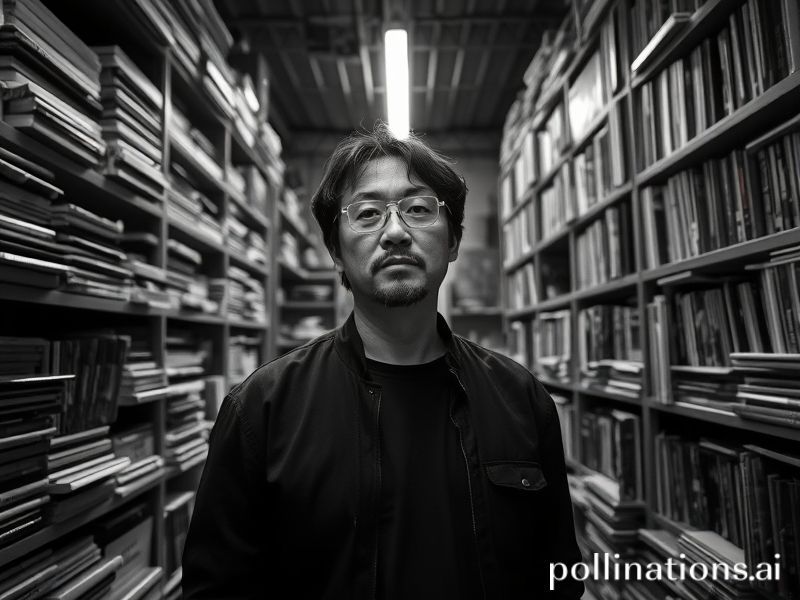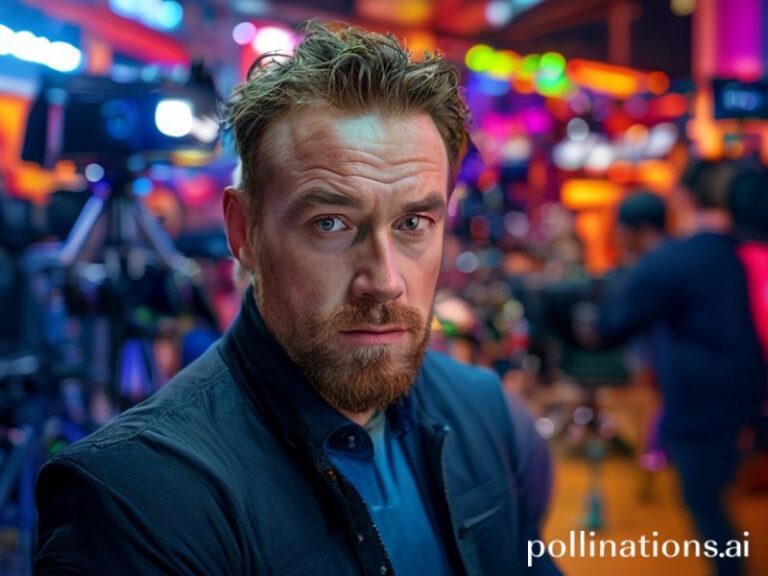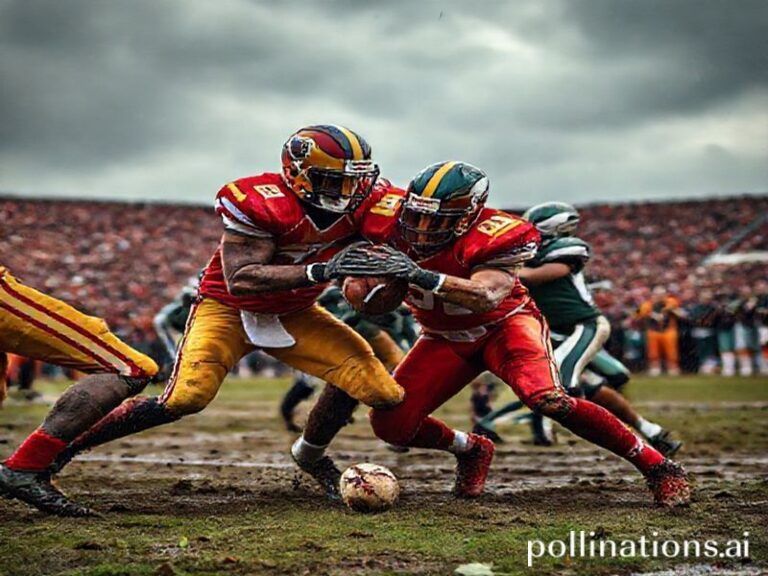Hideo Kojima: The Tokyo Oracle Shipping Global Nightmares Overnight
TOKYO—Hideo Kojima, the man who once hid the meaning of life inside a 90-minute cut-scene, has transcended mere game design to become a geopolitical weather vane. While Washington and Beijing trade tariff threats like Pokémon cards, Kojima quietly ships “Director’s Cuts” that feel more predictive than the CIA’s morning brief. If you want to know where the world is heading, skip Davos and boot up Death Stranding: every cracked highway, every drone-dropped pizza, is a love letter to late-stage globalization written in the only language Millennials still trust—pop culture with footnotes.
Born the same year Nixon landed in China, Kojima has spent four decades turning that historic handshake into cosmic horror. His games treat nations as brand managers, war as logistics, and human bodies as FedEx parcels with existential dread for packing peanuts. When Metal Gear Solid 2 warned that memes would replace governments, most players assumed he meant cute cat pictures; twenty years later, the Senate holds hearings on TikTok while QAnon cosplayers raid the Capitol. Somewhere in Shinagawa, Kojima must be sipping canned coffee and smirking like Cassandra who finally cashed her royalty checks.
The international angle is not incidental; it’s structural. Kojima Productions’ staff roster reads like a UNESCO happy hour—Japanese coders, Guerrilla Games refugees from Amsterdam, Hollywood actors on loan from the MCU. Their flagship studio sits fifteen minutes from Shinagawa Station, close enough to smell the ramen, far enough from Nintendo to avoid the scent of cheerful denial. Funding? A cloud of Sony yen, occasional Chinese venture capital, and whatever streaming platform is currently desperate to look “prestige.” It’s globalization in its purest form: a borderless startup built on tax breaks, fan anxiety, and the faint hope that art can still turn a profit before the oceans finish rising.
Meanwhile, the themes keep leaking off the screen. Death Stranding’s “chiral network” is basically the Belt and Road Initiative if it were haunted by dead whales. The game’s villain is a hyper-efficient logistics CEO named Higgs, which is either a dig at Amazon or Jeff Bezos’s final form. Players spend hours lugging medicine up snowy mountains because Amazon Prime stopped delivering to zip codes where the apocalypse is already live-streaming. Critics called it “walking simulator”; UPS drivers call it Tuesday.
Of course, the man himself remains a walking contradiction: half auteur, half influencer, entirely aware that the world’s attention span is now shorter than a TikTok dance. He tweets photos of his lunch in fluent emoji, then drops 40-minute trailers scored by Low Roar that quote Kierkegaard and advertise Monster Energy. It’s performance art disguised as marketing, or maybe the reverse; in 2024, the distinction feels quaint, like arguing whether the guillotine is a cultural or culinary device.
And yet the soft power accrues. French ministers quote MGS2 in speeches about AI regulation. Ukrainian soldiers stencil the Foxhound logo on their drones—because nothing says “resistance” like copyright infringement of a Japanese IP owned by an American conglomerate. Even the Pentagon solicited Kojima for “narrative consultation,” presumably to learn how to make forever war look like a tragic but stylish breakup.
The punchline? Kojima’s next project, OD, is literally about fear as a commodity, co-produced by Xbox Game Studios and Jordan Peele. In other words, the guy who predicted weaponized memes is now selling horror by subscription, with global distribution on day one. If that sounds dystopian, remember that dystopia is just utopia with better graphics and micro-transactions.
So here we are: climate collapse on the installment plan, supply chains held together by dental floss and spite, and a 60-year-old game designer from Tokyo mapping the nightmares with more clarity than the G7. When historians sift through the rubble, they’ll probably find a PS5 controller still blinking “CONNECTION UNSTABLE,” and a note: “Keep on keeping on.” Dark, sure. But at least the delivery was on time.







